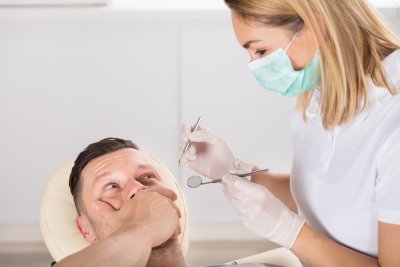How Can I Get Over My Dental Anxieties?

Dental check-ups at 6-month intervals are essential for good oral health, but it’s not uncommon for a person’s fear of the dentist’s chair to keep him or her away from the office. People with dental anxieties and phobias are more likely to suffer from gum disease, tooth decay, and frequent toothaches because they don’t get the preventive care they need. Don’t let your dental anxieties ruin your beautiful smile. During an appointment at a dentist’s office in Renton, WA, speak up about your concerns. The staff can work with you to find an approach that helps you.
Consider Sedation Dentistry
Sedation dentistry, such as the use of intravenous (IV) conscious sedation, is appropriate for many patients with anxiety. The FDA-approved medications will not force you to fall asleep, but you will be deeply relaxed. Time will seem to pass much more quickly, and you might not remember much of the appointment. With dental sedation, you can get extensive treatments done in just one visit, instead of having to go back to the office for multiple appointments.
Use Relaxation Techniques
When anxiety takes over, a person’s heart rate quickens and breathing becomes abnormal. The muscles tense up, too, which is why some people get up out of the dentist’s chair feeling as though they’ve just been to the gym. Progressive muscle relaxation is a technique that can be particularly helpful during a dental cleaning. Try to divert your focus away from what the dental hygienist is doing and toward your muscles. Starting with your toes, squeeze one muscle group at a time, hold for a few seconds, and then release. Feel the tension drain away from your muscles as you work your way upward. After you’ve completed this, lift one foot at a time and move it in slow circles. Stretch out your legs and try to relax your breathing.
See a Mental Health Counselor
For some people, dental phobias are born of post-traumatic stress disorder (PTSD). If you just can’t bring yourself to make a dentist appointment, consider talking with a mental health counselor. Treating the underlying mental health issue may allow you to get the oral healthcare you need.
